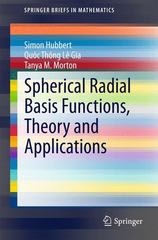Question
1. Provide an example of classical probability and explain how the example illustrates the concept. 2. Provide an example of empirical probability and explain how
1. Provide an example of classical probability and explain how the example illustrates the concept.
2. Provide an example of empirical probability and explain how the example illustrates the concept.
3. Provide an example of subjective probability and explain how the example illustrates the concept.
4. Provide an example of using the addition rule to determine the probability that one or the other of two mutually exclusive events will occur. Explain why the events are mutually exclusive and include an example of the calculations.
5. Provide an example of using the multiplication rule to determine the probability that two independent events will occur in sequence. Explain why the events are independent and include an example of the calculations.
Step by Step Solution
There are 3 Steps involved in it
Step: 1

Get Instant Access to Expert-Tailored Solutions
See step-by-step solutions with expert insights and AI powered tools for academic success
Step: 2

Step: 3

Ace Your Homework with AI
Get the answers you need in no time with our AI-driven, step-by-step assistance
Get Started


